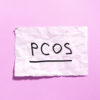There are so many birth control options these days, it may feel overwhelming to even know where to start exploring what is right for you. In an office visit, sometimes it is hard to absorb all the information discussed with your doctor and you leave with more questions than answers!
Let’s take a minute to review all your choices, so you when you meet with your doctor, you are informed and ready to talk.
The Pill
I find that when I ask my patients about birth control, many think I only mean “the pill.” Actually, “the pill” can mean many different things, so let’s break it down.
- Combination pill – this type of pill contains both estrogen and progestin. The two hormones work together to prevent ovulation and minimize other symptoms associated with your period like cramping and acne. The combination pill comes in various forms: monophasic (same combination of hormones every day of the pack), triphasic (the hormones vary week by week), continuous (instead of monthly periods, you get a period every 3 months). The decision for which type depends on what your period is like and what other problems you have with your period, like heavy flow or headaches.
- Progestin only pill – this pill is also sometimes called the mini-pill. As the name implies, it only contains one hormone, so for those with risks or side effects associated with estrogen, this is a good option.
All types of the pill require you to take them at the same time daily. There are many brands of the pill, so you have many choices in finding one that is right for you. Some side effects can include headache, bloating, breast tenderness, spotting between your period. Many times these side effects are short lived and resolve as your body gets used to the hormones.
The Patch
There are now 2 types of patches on the market. It works similarly to the combination pill except you change the patch weekly, so for those who can’t remember to take a pill daily, this is a good option. However, for those with a BMI > 30, this is not as effective and increases your risk of blood clots.
The Vaginal Ring
This again is a similar option to the combination pill except the hormones are contained in a soft, flexible ring that you place in the vagina and change monthly. It is convenient and low dose. Recently, a new ring came on the market that lasts a year. The ring requires you to feel comfortable inserting and removing, but it is easy if you are already using tampons or menstrual cups.
All these options are hormonal, reversible, short acting birth control. All are very effective, but rely on you to be consistent with using them correctly. All of them cannot be used if you have a history of a blood clot, liver disease or breast cancer.
LARC
Another category of birth control is long acting reversible contraception or LARC. These options include:
- Progestin IUD (intrauterine devise) – this type of IUD comes in a couple different doses and sizes. They are inserted in the office by your doctor and are effective immediately. They last anywhere between 5 – 6 years, but can be removed at any time and your fertility resumes immediately. The progestin IUD has the advantage of making your period lighter and less crampy.
- Copper IUD – this IUD has no hormones and is the most effective non-hormonal reversible birth control. It is good for 10 years. The down side is that it may make your period heavier or more crampy, but for many their period remains the same.
- Implant – Nexplanon is the only one on the market. It is inserted in your arm through a needle, so no incision is necessary. It lasts 3 years and only contains progestin. It is a nice alternative if you want something long acting, but are not comfortable with an IUD.
The one down side is that your period may be unpredictable.
The great thing about LARC birth control is that once it is inserted, you don’t have to think about anything for several years.
Nonhormonal short acting
Traditionally, this includes condoms, diaphragm, and spermicide. A new product on the market is Phexxi that is a gel inserted prior to intercourse and prevents pregnancy by keeping the vaginal pH low (acidic). All these options have a higher failure rate and are very user dependent.
Permanent
If you are done having children or desire a permanent form of birth control, the options include a tubal ligation or vasectomy. A tubal ligation requires general anesthesia (you are asleep) and carries risks of surgery (like bleeding or infection, although this is rare). A tubal ligation can either be burning the tubes or removing the tubes altogether (bilateral salpingectomy) which may lower your risk of ovarian cancer. A tubal ligation can also be done at the time of a c-section. A vasectomy is an office procedure that is done by a urologist.
When you make an appointment to discuss these options with your doctor, make sure you bring a list of your medications and any health issues that you have. This will be helpful in tailoring the discussion of what birth control is right for you. And remember, none of these birth control options protect you from STIs except condoms.








